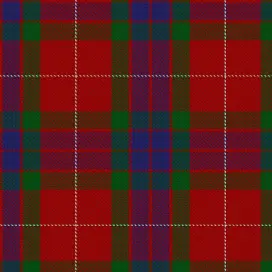CONFIDENTIAL
Ministry of Defence
London, England WC32
FLTC-660
1 April 1982
MOD Order 10482
Robert William Campbell Fraser
Lieutenant Commander, Royal New Zealand Navy
c/o Foss Launch & Tug Company
660 West Ewing Street
Seattle, Washington 98119
United States of America
Reference: (A) MOD Directive 33182
In accordance with Reference A, you are hereby recalled to active service in support of Her Majesty’s Naval Forces efforts to regain control of the Falkland Islands.
As soon as practicable, and not later than 12 April 1982, you are directed to proceed to Port Stanley, Falkland Islands, where you will assume the duties of Commandant of the Falkland Islands, with the rank of Captain, Royal Navy.
Your duties will be to assemble all military forces remaining in Port Stanley and hold position until formally relieved by Her Majesty’s forces.
Upon successful cessation of hostilities, you will be released to inactive service with the rank of Captain, Royal Navy, and the honorary title of Commodore.
By special dispensation from the President of the United States, your service in support of the Crown will not alter your United States citizenship status.
(signature)
John Nott
Secretary of State for Defence
———————————————————————–
So reads a letter, in triplicate, that I recently discovered among my father’s papers. I didn’t have any memory of him heading out of the country urgently in early 1982 (this would have been two months before I graduated high school, and at the time I was not in Seattle, but San Mateo in California). I was pretty sure that if he had rushed off to take command of military forces in the Falklands at the outbreak of the conflict, I would have known about that. The letter appeared genuine. It’s clearly typed on paper that is aged about right to be from 1982, and in an envelope that is similarly aged. I don’t know what John Nott‘s signature is supposed to look like, but he was indeed Secretary of State for Defence in the British government at the outbreak of the Falklands War.
So I asked my father, “What is this? Were you called up for service in 1982?” His response: “Oh, that. I assumed it was a practical joke and ignored it.” And of course, it has to have been a joke. The letterhead is missing the Ministry of Defence logo. There are no accompanying details about orders or disbursement of funds or exactly how he was to get himself to Port Stanley at a time when Argentina was pretty much blockading the place. And why exactly would the Royal Navy call upon an ex-reserve officer who had been out of the service for about twenty years, and New Zealand’s Navy at that, and was now living as a private citizen in the United States? To take command, of all things? Surely the Royal Navy must have had an active duty commander available; surely they wouldn’t be quite that desperate.
Still, what if it wasn’t a joke? What if it was real, absurd as it sounded? My next question, then, was “Well, did you check it out? Did you follow up, or contact anyone at the Ministry of Defence?” No, he did not. He just filed the letter away and ignored it. He assumed one of his sons (not I) had concocted it. What if? Thirty years later, and could he be considered derelict in his duty? Surely not.
I asked my brother Rob what he knew about it, and he had no memory of the letter. It wasn’t him. Not his style, in any case.
1 April 1982. April 1st. An April Fools joke, surely.
As it happens, at midnight that night, April 1st, is when Argentine amphibious troops began landing on the islands, and as the buildup to this event had occurred over the previous few months, British forces were already steaming toward them. By the end of the next day, London was telexing to find out what happened:
LON (London): HELLO THERE WHAT ARE ALL THESE RUMOURS WE HEAR THIS IS LON
FK (Falklands): WE HAVE LOTS OF NEW FRIENDS
LON: WHAT ABOUT INVASION RUMOURS
FK: THOSE ARE THE FRIENDS I WAS MEANING
LON: THEY HAVE LANDED
FK: ABSOLUTELY
LON: ARE YOU OPEN FOR TRAFFIC IE NORMAL TELEX SERVICE
FK: NO ORDERS ON THAT YET ONE MUST OBEY ORDERS
LON: WHOSE ORDERS
FK: THE NEW GOVERNORS
LON: ARGENTINA
FK: YES
LON: ARE THE ARGENTINIANS IN CONTROL
FK: YES YOU CAN’T ARGUE WITH THOUSANDS OF TROOPS PLUS ENORMOUS NAVY SUPPORT WHEN YOU ARE ONLY 1600 STRONG. STAND BY.
–Duncan, Andrew, The Falklands War, Marshall Cavendish Books Limited, ISBN 1-84415-429-7
In retrospect, I am convinced the letter was indeed an April Fools joke, although the timing was propitious and the invasion was certainly no joke. Indeed, the whole thing has the feel of the work of my other brother, Peter. The attention to detail in the letter would be just right for him, as would the idea in the first place. I wish I could ask him about it now, but of course that’s impossible.
Peter died in 1996.
